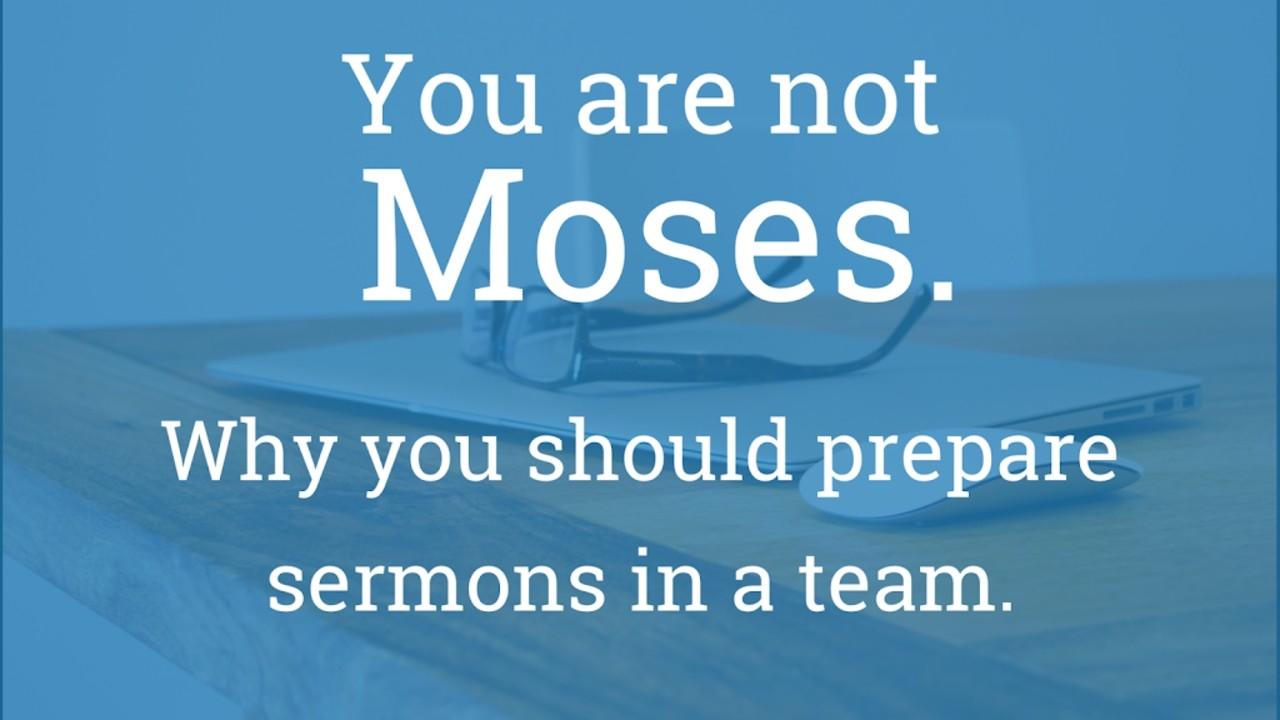Why You Should Prepare Sermons in a Team (Part 2 of 3)

If you haven’t read part one of this series, make sure to check it out. In that post I discuss four reasons why most preachers prepare their sermons alone. In this post I address the question of why it matters because you may be asking… So what if I prepare my sermons alone, what difference does it make?
When I went from solo preparation to a team based model my sermons improved dramatically. They became much more connected to my listeners. I am convinced that a purposeful team approach with intentional input from others at every stage of preparation has been THE thing that has most improved my sermons. In the final post of this series (part three) I will discuss exactly what this looks like for me and offer suggestions on how to get started. Before I get to that I want to address one question:
What’s wrong with preparing Sermons alone?
If almost everyone does it this way, then how could it be so bad? If you prepare your sermons alone week after week, you draw from the same well and eventually it runs dry. You start to tell the same stories, use the same examples, select the same scriptures and teach in the same way.
You alone prepare sermons that you would like on topics that interest you for the benefit of… others? It doesn’t make a lot of sense, but it is the standard method of many pastors.
In the first part of this series I tried to get inside your head. I poked at four possible reasons why you prepare sermons alone. It was all about getting down to the motivation behind why you might prepare in this way. Today, I want to look at the outcome. What happens when, week after week, your sermons have been prepared by you sitting in a room with books and a computer? What happens after years and years of limited input from anyone but you? There are three primary outcomes of preparing alone:
1. Your sermons lack relational depth. Your sermons should be rich with relational insight. The stories, examples and applications you use should come from a variety of relational experiences. This only happens when you bring other people into the process. You are one person with one set of experiences that are decidedly different than your listeners.
I benefit tremendously by getting input from people who are not like me. I’ll talk to a single mom and ask her to give me feedback on something I’m planning to preach on family. I’ll run a concept by a senior citizen to see if it will connect with them.
The more you can get input from different kinds of people in different life situations the better chance you’ll have of connecting with more people.
2. You miss your blind spots. You have blind spots in your life and ministry. We all do. These blind spots show up in your preaching. Developing sermon content can be one of the most vexing things we do as preachers. In the process of praying, studying, and trying to synthesize all of your material into a sermon you can miss things because you have tunnel vision. You can be so consumed in study and excited about the material that you don’t realize that it will make no sense to most of your listeners.
Including others in the process of your preparation keeps you from running with an idea or concept that won’t work. It protects your blind spots.
3. It all depends on you hearing from God. Way too much pressure is put on you when you have to come up with all of the content every week. You’re not infinitely wise. You can’t possibly know every week exactly what needs to be said. Preparing in a team draws from a pool of greater wisdom. Instead of it being just you who needs to hear from God, why not have a team of people hearing from God?
In part three I will discuss what it looks like to prepare sermons in teams. I would like to hear from you. How do you see this issue? Do you agree that preparing alone is not the best way? Why or why not?


